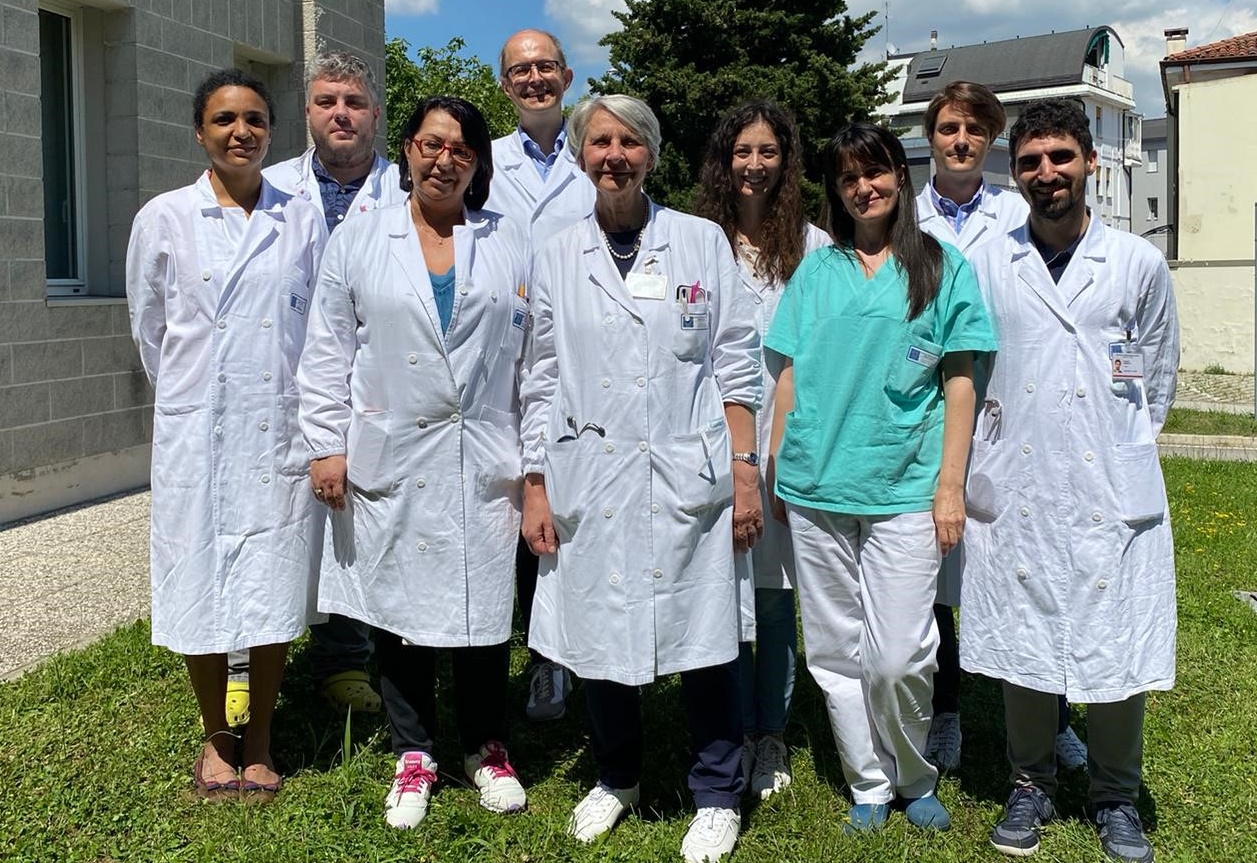BIOMARKERS AND TREATMENT OF PATIENTS WITH PROSTATE CANCER
Several biomarkers are being studied in metastatic prostate cancer. The Genitourinary Group of IOV participates to several trials exploring new biomarkers in prostate cancer patients. Most researches focus on Androgen Receptor Variant 7- (ARv-7), AR copy numbers, DNA repair genes, miRNAs, cell cycle regulators and many other mediators of tumor progression and metasatization. Biomarkers are mainly studied in plasma and exosomes as well as in circulating tumor cells.
The Genitourinary Group of IOV gives important contribution to National and International cohort studies on the outcome of patients with prostate cancer treated with different systemic therapies, with the aim of providing real world evidence on the efficacy and tolerability of such treatments. The Group participates to international trials with new drugs such as PARP-inhibitors, AKT inhibitors and immunotherapy. Peculiar attention is devoted to older patients who are at risk of developing increased toxicities and quality of life impairment due to aggressive treatments.
BIOMARKERS AND TREATMENT OF PATIENTS WITH RENAL CELL CARCINOMA
Several biomarkers are being studied in metastatic Renal cell carcinoma. The Genitourinary Group of IOV has coordinated a national prospective study on the prognostic and predictive role of Circulating Tumor Cells in patients with metastatic renal carcinoma and participates to several studies aiming to define predictive biomarkers of response to immunotherapy (neutrophil to lymphocyte ratio or platelet to lymphocyte ratio or Systemic Inflammatory Index).
The Group participates to several National and International cohort studies on the outcome of patients with renal cell cancer treated with different systemic therapies, with the aim of providing real life evidence on the efficacy and tolerability of such treatments. Peculiar attention is devoted to older patients who may be less compliant to oral drug prescriptions and may drop out in case of severe toxicities. The Genitourinary Group of IOV participates to international trials with new combination regimens of immunotherapy as well as with novel drugs such the anti HIF-2alfa agent MK-8462.
IMMUNOTHERAPY AND BIOMARKERS IN PATIENTS WITH BLADDER OR UPPER URINARY TRACT CARCINOMA
Immunotherapy has revolutionized the treatment of urothelial carcinoma. The Genitourinary Group of IOV has participated to several trials with anti PD1 or PD-L1 agents in urothelial carcinoma, some of which explore the use of immunotherapy in the neoadjuvant setting. Aggregated data from patients treated at IOV have been coollected within some National collaborative studies. Further analysis will focus on the role of PD-L1, tumor mutational burden, Nectin-4, cytokeratins and DDR defects in urothelial carcinomas of the Upper Urinary tract district.
The Genitourinary Group of IOV participates to several international studies with new drugs for urothelial cancer such as FGFR Inhibitors and immunotherapy.
OUTCOME AND QUALITY OF LIFE OF PATIENTS WITH TESTICULAR CANCER
The Genitourinary Group of IOV has been involved in several quality of life projects involving testicular cancer patients within the EORTC quality of life group. A novel prospective study aims at assessing paternity and quality of life issues in patients who have been cured for this tumor but continue to be followed at the Genitourinary Clinic of IOV for long term follow-up visits.
The Genitourinary Group of IOV participates to the international “IGCCCG Update” initiative whose aim is that of conducting a retrospective analyses on the outcome of metastatic patients treated with curative intent with PEB chemotherapy or with second-line regimens comprising also high dose chemotherapy with autologous bone marrow transplantation. The aim is to achieve a modern prognostic stratification of patients with metastatic germ cell tumors in order to personalize the intensity of treatment according to individual risk.
In cooperation with G3 international Group, The Genitourinary Group of IOV has contributed to recent analyses on the outcome of patients with relapsed seminoma after adjuvant treatment, and will give its contribution to a novel study on seminoma relapses after adjuvant radiotherapy.




